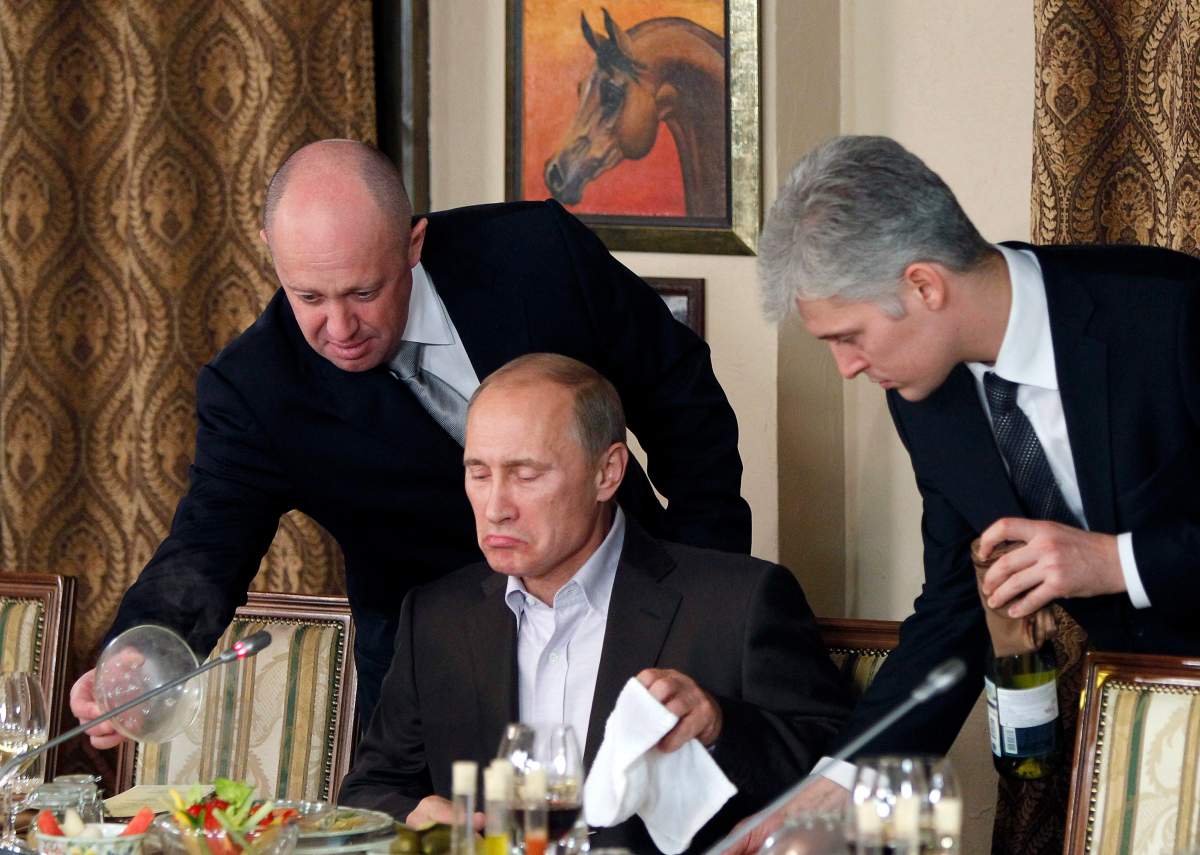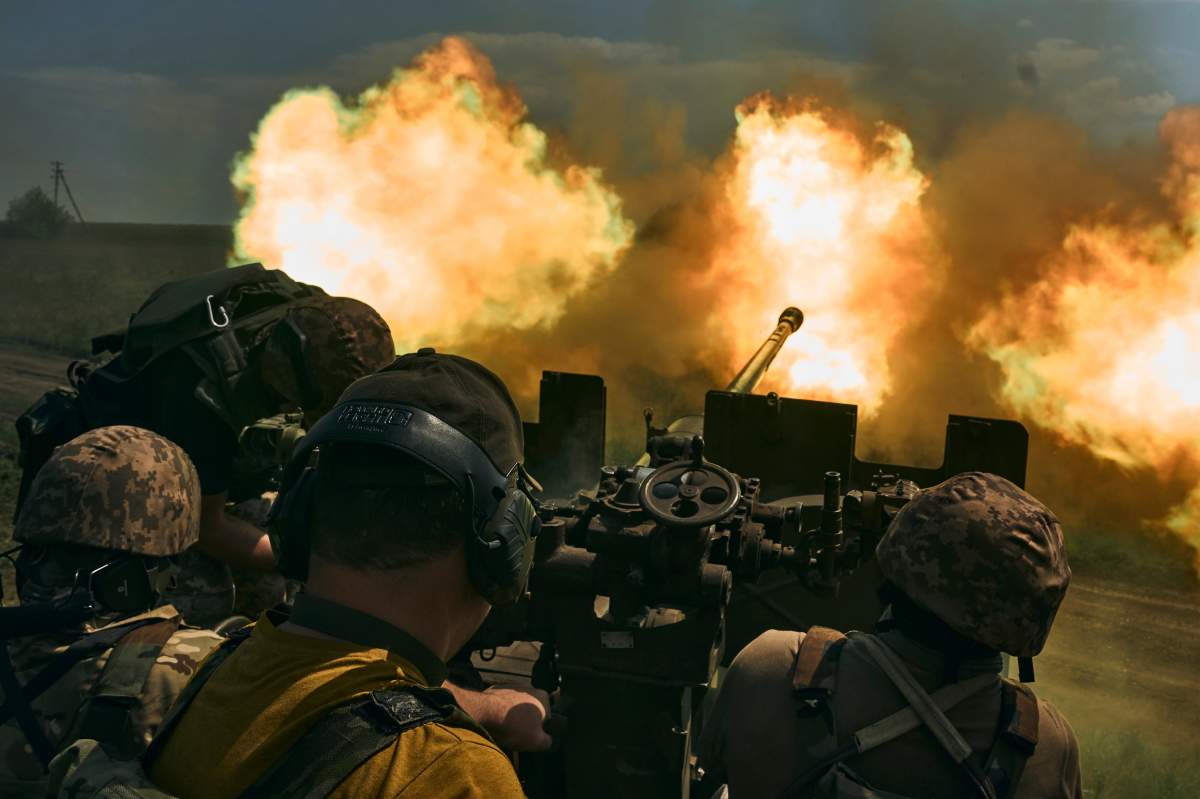As the war in Ukraine rages on and Western allies pledge additional support for the next phase of the fight, one man has drawn attention as an outsized influence on the Russian side of the invasion.

Yevgeny Prigozhin is the defacto leader of the Wagner Group, a private militia that has helped shape the war in Ukraine like few private entities have in the past. The Wagner Group has been at the helm of the battle for Bakhmut, the bloodiest and longest of the war. Russian President Vladimir Putin has leaned heavily on their forces.
But who are Prigozhin and the Wagner Group, and why are they so prominent in the conflict?
From 'Putin's chef' to war lord
What is known about 61-year-old Prigozhin suggests some aspects of similar upbringing to Putin. Both come from St. Petersburg from relatively modest backgrounds and by all accounts learned to fend for themselves.
Prigozhin, for one, began selling hotdogs in the city around the collapse of the Soviet Union in the early 1990s after a sordid past involving time in jail for theft, armed robbery and break and enter, according to University of Toronto professor Aurel Braun, who specializes in Russian history.
He began opening restaurants and eventually started a catering business. Putin is believed to have been one visitor to his restaurant in St. Petersburg. After becoming president in 2000, he began to take foreign dignitaries there, Braun also noted.
Soon, Prigozhin had won major government catering contracts worth millions and grew closer to Putin, earning the nickname “Putin’s chef.”
“He became an oligarch thanks to his close relationship with Putin,” Braun said. “You are looking at a very sordid, unscrupulous, extremely nasty, corrupt, vicious individual.”
It wasn’t until 2014 though that Prigozhin began offering private military services, a move that would go on to position him to carry out the will of the Kremlin, while giving them plausible deniability of being involved, Braun said.

Get breaking National news
Putin began using the Wagner Group to help with the illegal annexation of Crimea, as well as in various Russian activities — both official and unofficial — in war-torn areas around the world, including in Africa and Syria.
“You can get away with more,” Braun said of the unique advantages of using private militias. “They can engage in terror activities and then the Kremlin can deny any links.”
Over the years, the Wagner Group’s notoriety grew and they became known for their brutality, with accusations of rape, robbing civilians and torturing accused deserters.
Braun says the group now resembles more of an international crime organization, than a private militia. Indeed, in early 2023, the U.S. Treasury sanctioned the group as a transnational criminal organization, and Canada’s House of Commons adopted a non-binding motion calling on the government to label the group a terrorist entity.
Linking the allegations of brutality by the group to the Kremlin and Putin, however, has at times proved challenging, and many have voiced concern that Putin can effectively skirt international law through their use.
Many of those allegations now stem from Ukraine.
On the frontlines in Ukraine
Forward to the present, and the Wagner Group has emerged from the shadows and increasingly been in the international spotlight as a major force working on behalf of Russia in Ukraine.
Braun said that the group employs between 20,000 and 50,000 fighters in the war, and Prigozhin has been unusually outspoken for a prominent Russian in criticizing elements of the military effort.
He has criticized Russia’s defence minister and accused Russian soldiers of abandoning their flanks in Bakhmut, while also claiming that Russia has not provided sufficient military support or ammunition.
Braun suspects the open criticism is in line with Putin’s leadership style.
“(Putin) likes to pit one group against another,” Braun said. “He likes to have disputing warring tribes and he is the one who holds them together.”
Bakmhut has proved a significant challenge for both Russia and Ukraine, with both sides digging in and often-foggy accounts of who may be making progress day to day.
How long Putin’s patience will last with Prigozhin remains to be seen though, especially as the group has suffered tremendous losses in Ukraine. But the Wagner Group has proved useful to Putin in gaining fighters through the recruiting of prisoners.
Putin has conscripted around 300,000 Russians so far to fight in Ukraine, but Braun says there are estimates that over one million Russian men have fled rather than fight.
Putin has relied on the Wagner Group’s recruitment of prisoners, who can’t typically be conscripted but must be induced to volunteer, raising concerns by the United Nations.
“We are troubled by allegations that recruited prisoners are regularly threatened and ill-treated by their superiors,” UN experts said earlier this year.
“We have information that several recruits have been executed for attempting to escape and, in other cases, seriously injured in public as a warning to other recruits. Such tactics constitute human rights violations and may amount to war crimes.”
According to reports, Wagner threatens and intimidates prisoners into agreeing to work for them, and offers them freedom if they fight for about six months, as well as pay that is higher than the military average.
Hiring prisoners has allowed Wagner to fill Russia’s frontlines, but even that strategy may not be sustainable given the massive casualties in Ukraine.
“People in prisons are beginning to understand now they’re being used as cannon fodder,” Braun said.










Comments